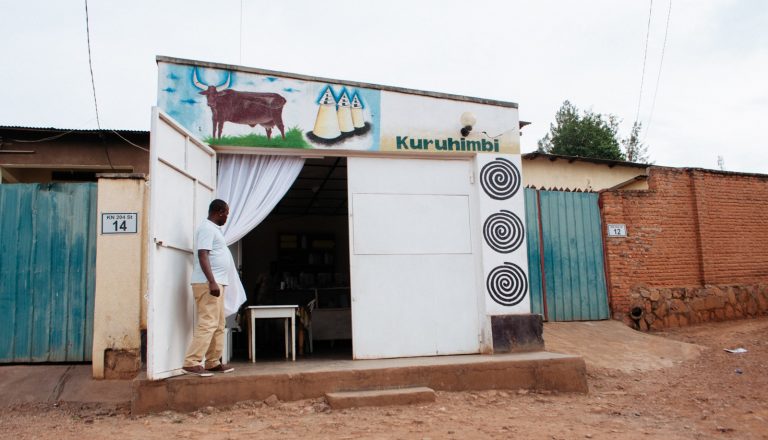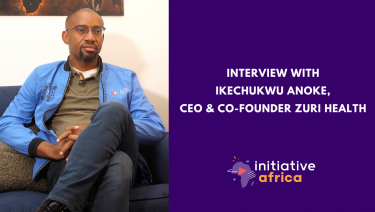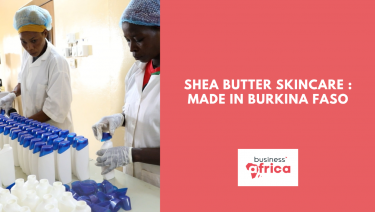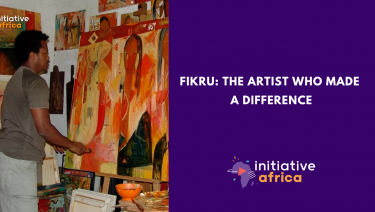Are Rwanda’s milk bars running dry?

Michael Sommers
How climate change (droughts), Covid-19 and competition (“Milk Zones”) have impacted the traditional Rwandan milk bar and the importance of milk in Rwanda’s society, culture and economy.
Are Rwanda’s Milk Bars running dry?
When it comes to Rwanda’s national drink, Glory Iribagiza isn’t afraid to give her frank opinion. “I prefer inshyushyu because it’s very tasty, especially with cookies,” confesses the Kigali-based journalist, while admitting “most people like ikivuguto, which is cooling, especially when it’s sunny.”
A Cultural Institution
Inshyushyu, raw milk that’s boiled and served piping hot, and ikivuguto, chilled fermented milk frequently tamed with honey or sugar, are the twin beverages of choice in Rwanda’s traditional milk bars. Adorned with hand-painted signs and bovine insignia, these small indie businesses, exclusive to Rwanda, are popular gathering places. Locals trade news and gossip, as they wind down while upping their protein and calcium intakes.
Rwandans’ predilection for milk is hardly a new fad. For centuries, cattle have been a source of wealth, status, and sustenance. Originally cows were a rare and sacred commodity; it wasn’t until the 1910s that milk began to be commercialized at shops that were the ancestors of the modern-day milk bar.
More recently, as Rwanda sought to recover from the devastating 1994 genocide that killed some 800,000 people (and an estimated 90% of Rwanda’s cattle), the government turned to cows as a solution to poverty and malnutrition. In 2006, President Paul Kagame launched the “Girinka” (“May you have a cow”) program in which needy families received a cow. As a result, milk production boomed. So did Kigali’s milk bars, whose owners purchased the overflow of fresh, country milk, dispensing it to urban transplants nostalgic for the taste of home.
Covid and Climate Change
However, current times have been tough. Milk bars took a hit as a result of Covid-19.
As Iribagiza recounts, stringent measures including lockdowns and enforced closures forced many to lay off workers and shutter their doors, at least temporarily. “The pandemic impacted milk bars’ earnings, but also those of suppliers and customers.”
Fortunately, milk bars are more than just bars. “Many people come with 2-litre or 5-litre containers to fill up and take home,” explains Iribagiza. As such, the pivot to take-out business came naturally.
Less natural are the extreme weather conditions battering much of Africa, including Rwanda, as a result of climate change. Extended droughts have made food and water scarce for both humans and livestock. Diminished milk supplies have led to higher prices. “This is the first time, to my knowledge, that we have such a big milk shortage,” confesses Iribagiza. “Industrialized milk is now for the wealthy, sold for three times as much as milk bar milk.”
Rival Milk Zones
In Rwanda, industrialized milk is synonymous with Inyange, the largest producer of pasteurized milk. Aside from selling packaged milk to retailers, Inyange has opened 76 “Milk Zones”. With Instagrammable baby-blue facades and sterilized (if sterile) interiors, these franchises have gained an upper hand in the milk bar wars. Better equipped to refrigerate and store large quantities of milk for days, they’re also air-conditioned.
Meanwhile, Rwanda’s recent milk shortages have unexpectedly provided traditional milk bar customers with an advantage. “Because it’s sold for three times as much as milk bar milk, industrialized milk is now for the wealthy,” explains Iribagiza. “Traditional milk bars have the same shortages, but they haven’t raised prices.”
Competition, Covid, and climate change aside, Iribagiza predicts traditional milk bars will survive. “Many bars specialize in making the best-fermented milk. Others are kind to customers. The most important thing worth preserving is fresh milk. It tastes different from organic and pasteurized. It’s also more nutritious.”
See also

Interview with Ikechukwu Anoke, CEO & co-founder Zuri health
With one doctor for every 10,000 people in Africa, and 65% of mobile users without internet access, ZuriHealth is tackling the continent’s biggest healthcare challenges head-on. In this interview, CEO Ikechukwu Anoke shares how this virtual hospital platform — accessible via SMS, smartphone, or basic mobile — is breaking down barriers to care, from affordability to geographical distance. Born out of a personal story, ZuriHealth now operates in 9 countries and aims to reach all 55 African nations within 3 years.

Shea Butter Skincare — Made in Burkina Faso
In Ouagadougou, Odiss Cosmétiques is transforming damaged skin and outdated beauty standards using one powerful tool: locally sourced, natural ingredients like shea butter, neem, and baobab oil. Founded by Denise Odette Konseiga, a former pharmacy assistant, Odiss has grown into a certified organic brand that now employs 17 staff and supports over 300 women across shea cooperatives. From Burkina to Belgium and beyond, the brand is making waves. In a market long dominated by imports, Odiss is proving that African-made skincare can be both ethical and effective. Journalist: Sonia Kocty

Interview with Trésor Ebamu Fakana, political analyst
In the Democratic Republic of Congo, organ transplantation remains largely unregulated and unpracticed. Political analyst and anti-human trafficking expert Trésor Ebamu Fankana calls for urgent public debate and legal reform to address the ethical, medical, and legal challenges linked to organ donation and trafficking. In this interview, he discusses his latest book Let’s Talk About It and warns about the dangers of inaction in a region where insecurity, poverty, and legal loopholes create fertile ground for exploitation. Journalist: Alexandra Vépierre

The Artist Who Made a Difference
From his first exhibition in 1995 to over 30 solo shows across Europe and North America, Ethiopian painter Fikru Gebremariam has carved out a singular path. His latest collection — exhibited at the Alliance Ethio-Française in Addis Ababa — marks a bold new chapter: an embrace of abstract expressionism rooted in African soil. In this portrait, Fikru reflects on his artistic evolution, his rejection of labels, and the subconscious forces that shape his work. Art historians, curators and fellow artists explore how his life, heritage, and travels converge on canvas. Journalist: Tefera Ghedamu